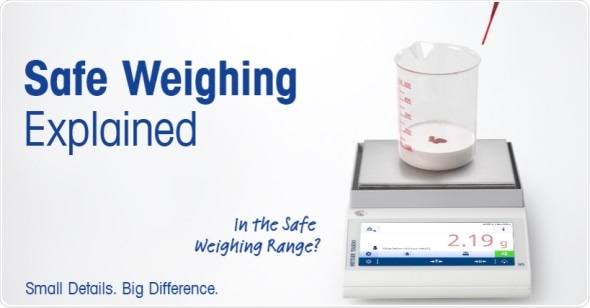Jul 27 2017
Manufacturer’s specifications generally state balance accuracy, but ongoing measurement accuracy requires establishment of a safe-weighing range. A new METTLER TOLEDO white paper describes how to establish the safe-weighing range and what it means for process accuracy, product quality, and consumer safety.
Anyone who uses scales know they have limits; a small kitchen scale wouldn’t be used to weigh a watermelon, nor would a pharmacist using that same scale to dispense medication. The first example is an issue of capacity, while the second would actually risk someone’s health.

These illustrations show why it is important to have the right balance for the process. METTLER TOLEDO’s new white paper, “Safe Weighing Range Ensures Accurate Results”, explains how objectively defining a balance’s accuracy and establishing a safe-weighing range can ensure a given balance is capable of meeting measurement needs.
A balance’s safe-weighing range lies between its scientifically calculated lower limit and maximum capacity. Establishment of this range takes into account the balance’s minimum weight, the safety factor applied according to process tolerance, and the balance’s maximum capacity. These parameters encompass issues such as:
- Acceptable quality: How much variation can be had and still create an acceptable end-product?
- Measurement uncertainty: What errors are likely to impact the final result?
- Process tolerance: Beyond what point can a value no longer be accepted in the process?
Generally, balance results can be considered reliable when measurement uncertainty is smaller than process tolerance, minimum weight is smaller than the smallest net weight to be weighed, and measurements lie within the safe-weighing range.